Do Robber Barons become Benevolent Philanthropists…or Do They Continue the Same Devious Methods of Control Under a Better PR Strategy?
Are you familiar with the term Robber Baron? A picture says a thousand words…
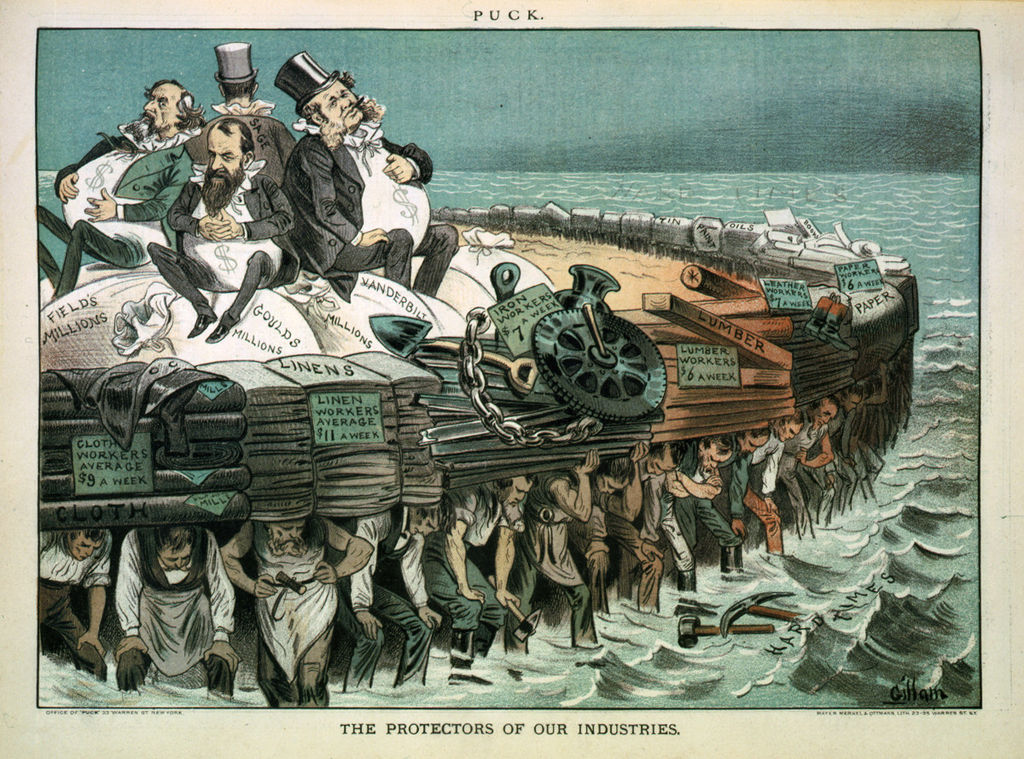
It was used to describe people like Andrew Carnegie, John D. Rockefeller, Cornelius Vanderbilt and plenty of others. That these people would lie, cheat and steal in order to attain more wealth. Most often while paying their employees tiny wages and preventing them from organizing to be able to get more.
Cognitive dissonance notwithstanding, we’re led to believe a myth that these people than became beacons of good-natured philanthropy later in life.
Is that the case…or was this convenient myth built from the robber baron’s propaganda?
If these people were so ruthless in business, do you really think they became “good” in older life?
Did a switch flip in their minds from not caring about people to starting to care? Sure, I’ll admit that people do sometimes change, so that is one possibility.
The other possibility is that they saw the power of public relations, especially when they had previously been reviled publicly for their ruthless business tactics. How good PR was instrumental to their continued success.
That they could in fact use their money, under the guise of good, while continuing to build exactly what they had before…more power, control and wealth.
It is the latter case that I believe is more of true when you look at the facts. I’m not denying that their philanthropy did some good, but I think that was not the main purpose of it, at least in many cases of some of the robber barons.
This theory is something to keep in mind as we look at history and today to see how philanthropy may not be everything it is cracked up to be.
John Perkins had this to say in his book, Hoodwinked:
“The function of philanthropy is a fascinating one. As a founder and board member of several nonprofits, I have had to come to grips with questions of integrity around accepting donations from people who made their fortunes in activities that contradict the philosophies of the organizations they offer to support…from a purely economic perspective, philanthropy is inefficient. A person who has accumulated billions of dollars and in doing so has caused others to lose their jobs, closed the doors of small businesses, or ravaged the environment, and then donates a small percentage of his fortune to correcting those problems or to the arts, would have served the world far better by making fewer profits while increasing employment, supporting small businesses, and insisting that his executives practice good environmental stewardship.”
Carnegie talked about spending the first half of life accumulating as much wealth as possible and the second half of life dedicated to giving it away. But, as Perkins suggests, why not accumulate some wealth in a better manner if you’re aiming for impact?
In 1886 a Supreme Court decision on corporate personhood gave those corporations some of the same rights as individuals. However, they did not have the same responsibilities. Thus, in the US, the Golden Age of Robber Barons was around 1900.
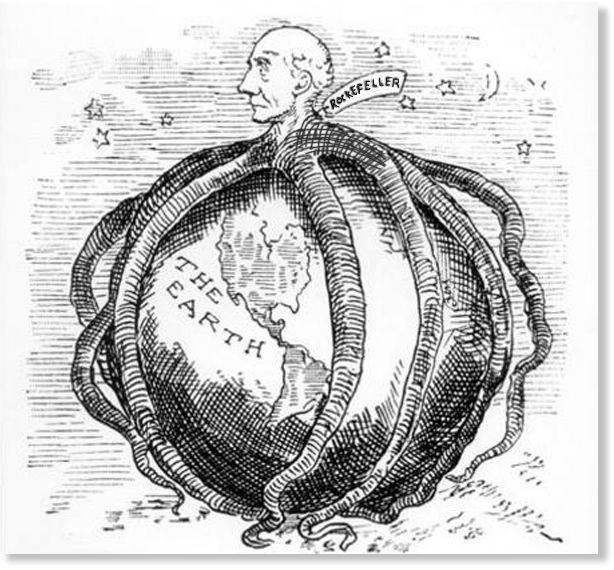
Let’s use the example of John D. Rockefeller to explore this theory.
His father was William Avery Rockefeller, though he went by Dr. Bill Livingston despite not being a doctor. This conman peddled “Rock Oil” tonic as a miracle cancer cure. According to the John D. Rockefeller: Anointed with Oil biography William stated, “I cheat my boys every chance I get. I want to make ’em sharp.” https://www.forbes.com/sites/carlodonnell/2014/07/11/the-rockefellers-the-legacy-of-historys-richest-man/#502f29ab3c26
In a major feat of irony, or perhaps the best example of the upside-down-and-inside-out world we live in, one of the men largely responsible for setting up Western medicine, was raised by the prototypical snake oil salesman. Meanwhile real snake oil itself was actually helpful! https://lostempireherbs.com/product/snake-oil/
The “sharp” John D. Rockefeller went on to create and grow Standard Oil becoming the first billionaire in 1916. (That’s equivalent to about $23.6 billion today.) This company came to control 90% of the USA’s oil.
He is attributed with the quote, “Competition is a sin.”
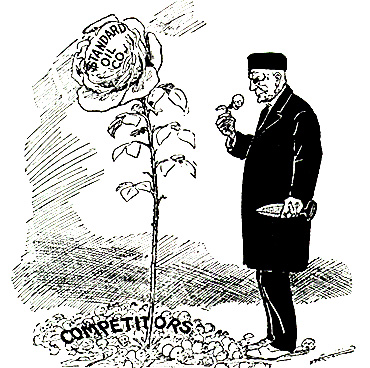
He would buy up companies and if they refused to be bought, he would use his full powers to run them out of business.
“One of the most effective attacks on Rockefeller and his firm was the 1904 publication of The History of the Standard Oil Company, by Ida Tarbell, a leading muckraker. She documented the company’s espionage, price wars, heavy-handed marketing tactics, and courtroom evasions. Although her work prompted a huge backlash against the company, Tarbell stated she was surprised at its magnitude. “I never had an animus against their size and wealth, never objected to their corporate form. I was willing that they should combine and grow as big and wealthy as they could, but only by legitimate means. But they had never played fair, and that ruined their greatness for me.” (emphasis added) https://en.wikipedia.org/wiki/John_D._Rockefeller
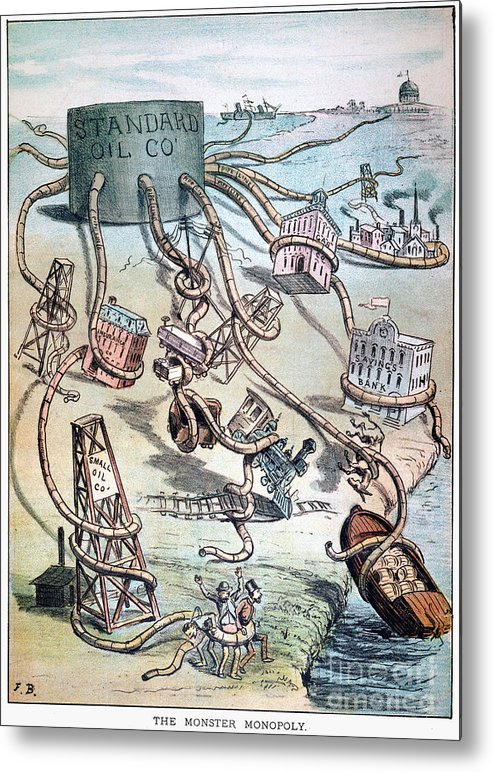
Standard Oil was broken up in 1911 by the Sherman Anti-Trust Act into 34 different entities becoming ConocoPhillips, BP, Chevron, Exxon-Mobil and more. This actually made Rockefeller richer.
One example of how Rockefeller used his power was the Ludlow Massacre. In 1913 a strike began at the Colorado Fuel & Iron Corporation, owned by Rockefeller, because of the murder of one of their organizers. Rockefeller hired the Baldwin-Felts Detective Agency which used Gatling guns and rifles to raid the strikers killing several. Still the strikers resisted. So Rockefeller called up the Colorado governor who called out the National Guard. The National Guard attacked the strikers. And still they resisted. More firefights ensued.
“At dusk, the Guard moved down from the hills with torches, set fire to the tents, and the families fled into the hills; thirteen people were killed by gunfire. The following day, a telephone linesman going through the ruins of the Ludlow tent colony lifted an iron cot covering a pit in one of the tents and found the charred, twisted bodies of eleven children and two women. https://www.zinnedproject.org/news/tdih/ludlow-massacre/
This whipped up more people working for the miners in support of the people. Yet, the New York Times wrote an article stating, “With the deadliest weapons of civilization in the hands of savage-mined men, there can be no telling to what lengths the war in Colorado will go unless it is quelled by force … The President should turn his attention from Mexico long enough to take stern measures in Colorado.”
Federal troops went in and the strike finally stopped. In the end, 66 men, women and children had been killed. No one was indicted on any crimes. John D. Rockefeller denied any wrong doing.
It was because of events such as these that Rockefeller realized he needed to clean up his act. He hired PR man, Ivy Lee. (Remember this was around the same time that propaganda was being widely used and turned into a science. Ivy Lee was the other main guy besides Edward Bernays.)
John D. Rockefeller became well known for giving out dimes to lots of people, most notably children. You can easily find many pictures of this online. Why? Because it was a huge public relations campaign.
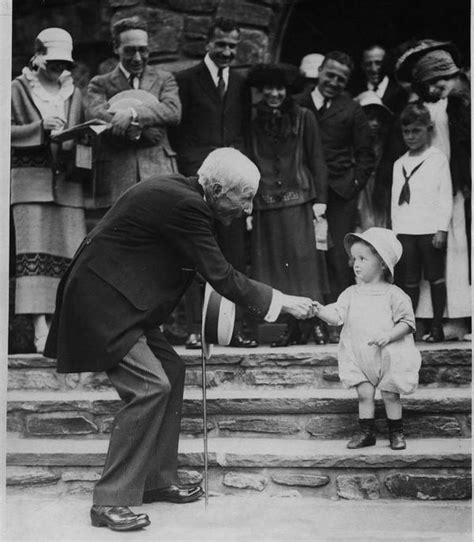
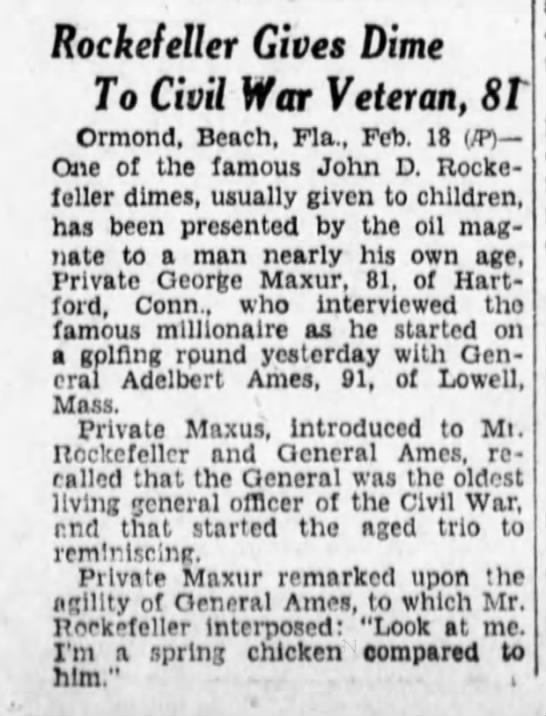
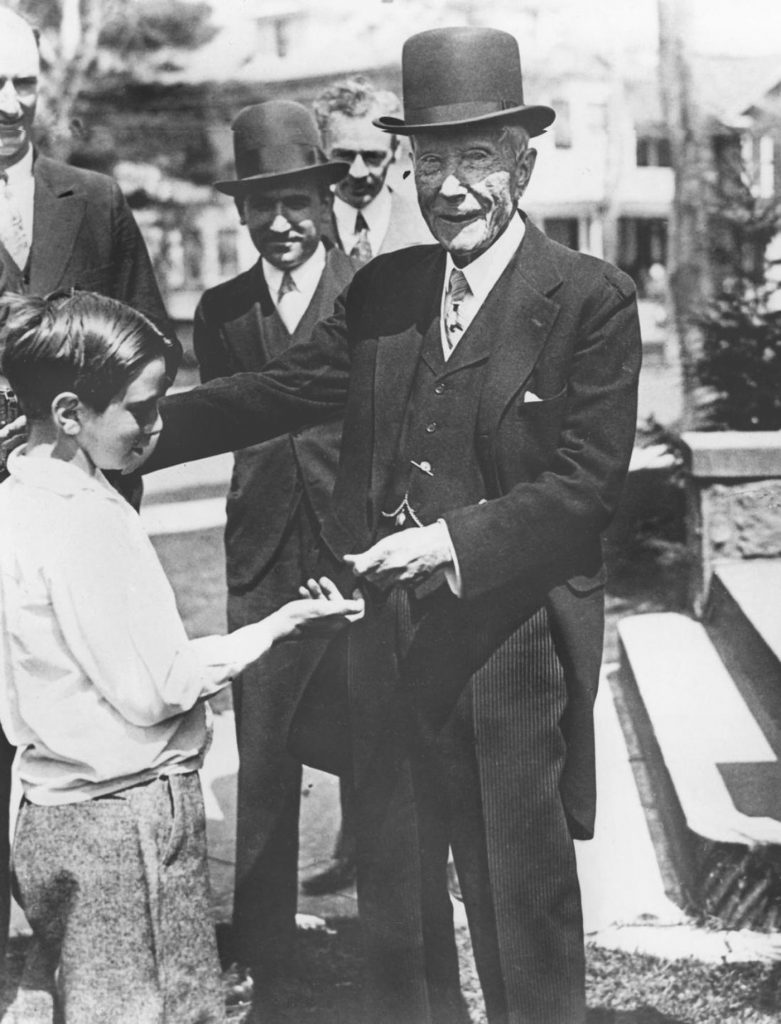
Part of the PR campaign was to become a philanthropist. In 1910, Rockefeller established the Rockefeller Foundation.
Interestingly enough, public relations is studied even under the guise of the Foundations work, as I found digging through the foundation’s website. In the 20’s the “Foundation funds a project by John Grierson to study the influence of films on public opinion. An expert on the impact of the mass media on society and later a film director, Grierson becomes famous for coining the term “documentary” for non fiction films.” https://web.archive.org/web/20120801192443/http://www.rockefellerfoundation.org/who-we-are/our-history/1920-1929
A couple of the main areas he focused on was education and medicine. In 1901 he established the Rockefeller Institute for Medical Research, which later became Rockefeller University.
Rockefeller formed the General Education Board in 1902 with a $1 million donation. Eventually $180 million would go towards this. In a publication titled “The country school of to-morrow” in 1913, the GEB wrote, “In our dream, we have limitless resources and the people yield themselves with perfect docility to our molding hand…We shall not try to make these people or any of their children into philosophers or men of learning, or men of science. We are not to raise up from among them authors, editors, poets or men of letters. We shall not search for embryo great artists, painters, musicians. Nor will we cherish even the humbler ambition to raise up from among them lawyers, doctors, preachers, politicians, statesmen, of whom we have an ample supply.” https://archive.org/details/countryschoolof00gate/page/6/mode/2up
Ask yourself, is our school system great? I heard someone describe it last year as being great for preparing you for work in the 20th century. Regardless of conspiracy or not, how our educational system works is largely a work of Carnegie and Rockefeller’s hands.
“Rockefeller spent much of the last 40 years of his life in retirement at his estate in Westchester County, New York, defining the structure of modern philanthropy, along with other key industrialists such as steel magnate Andrew Carnegie. His fortune was mainly used to create the modern systematic approach of targeted philanthropy through the creation of foundations that had a major effect on medicine, education, and scientific research. His foundations pioneered the development of medical research and were instrumental in the near-eradication of hookworm and yellow fever in the United States.” https://en.wikipedia.org/wiki/John_D._Rockefeller
Defined the structure of philanthropy. A modern systematic approach of targeted philanthropy. Major effect on medicine, education and scientific research. These words take on an ominous tone depending which theory you’re looking at this with.
The Secretary of the General Education Board was Abraham Flexner. He went on to product The Flexner Report after reviewing medical schools all over the country. http://archive.carnegiefoundation.org/pdfs/elibrary/Carnegie_Flexner_Report.pdf
This report changed the state of medicine forever. It was aimed at making medicine more “scientific”. (I put that in quotes because of the sheer amount of fraud conducted in medical science back then all the way up to today.) As a result schools would all become modeled after John Hopkins medical school.
Several systems of medicine, that most people haven’t even heard about today including eclectic medicine and physiomedicalism, virtually disappeared. These were, for the most part, herbalism. Homeopathy, osteopathy and others similarly did not make the cut. In essence, medicine was taken out of the hands of people to put it into an elite doctor class, which was of course educated according to how the Foundations saw fit, since they were funding it all.
The Flexner Report stated that there were too many schools, with too many doctors. They needed fewer so that the doctors could earn more. This resulted in women and black schools largely not making the cut, instead making the profession one almost exclusively of white men.
This work led to the focusing on disease, with a reductive scientific model, and forgetting preventative and holistic medicine. “There was maldevelopment in the structure of medical education in America in the aftermath of the Flexner Report. The profession’s infatuation with the hyper-rational world of German medicine created an excellence in science that was not balanced by a comparable excellence in clinical caring. Flexner’s corpus was all nerves without the life blood of caring.” https://www.ncbi.nlm.nih.gov/pmc/articles/PMC3178858/
It gave rise to pharmaceutical medicine, many drugs of which were derived from petroleum. Rockefeller’s business interests heavily diversified into growing drug companies, including IG Farben, guilty of Nazi war crimes. After the ware this would, like Standard Oil, be broken up into smaller companies in what still exist today, including Bayer, Sanofi, Agfa and BASF. https://en.wikipedia.org/wiki/IG_Farben
In 1952 to 1954, The Select Committee to Investigate Tax-Exempt Foundations and Comparable Organizations of the United States House of Representatives investigated the Rockefeller, Carnegie, Ford and other foundations. Often called the Cox Committee or the Reece Committee after it’s chairmen, it’s chief investigator was Norman Dodd.
Dodd’s report concluded, “It seems incredible that the trustees of typically American fortune-created foundations should have permitted them to be used to finance ideas and practices incompatible with the fundamental concepts of our Constitution. Yet there seems evidence that this may have occurred.” https://archive.org/details/DoddReportToTheReeceCommitteeOnFoundations-1954-RobberBaron/page/n13/mode/2up
This report details out how education, as funded by these foundations, was “subversive” to American principles.
The Rockefeller Foundation has continued it’s work up to today. It’s still heavily involved in education, medicine and other areas such as agriculture. There they heavily were involved in the “Green Revolution” which sounds great (of course, it’s PR!) but in actuality meant funding pesticide companies (almost allpetroleum derived) and GMO crops the world over.
John D. Rockefeller’s family is still around, many of which being involved in powerful positions over the years, including Nelson Rockfeller as vice president of the US under Ford.
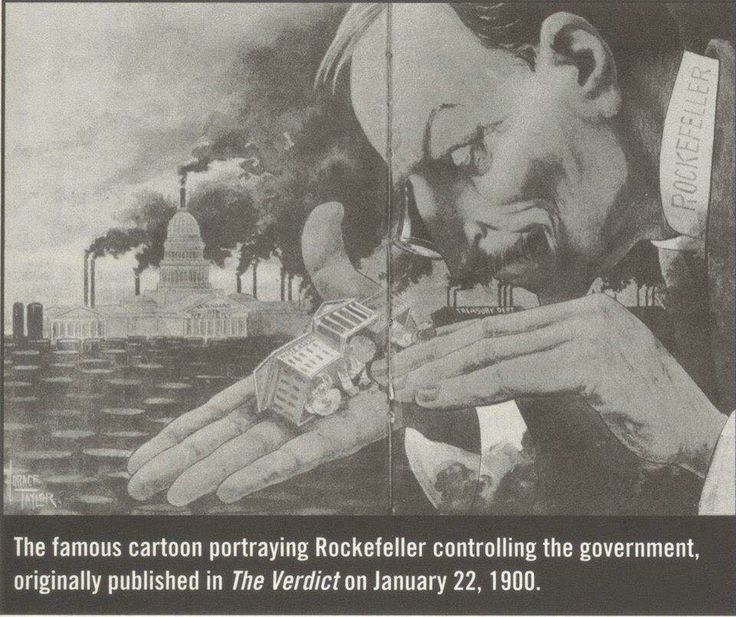
In John Perkins, The Secret History of the American Empire, he mentions “The agencies that are supposed to be the good guys are part of the game. I’m not just talking about the World Bank either. The deception includes some of the nonprofits, the NGOs.”
This is followed by a conversation he has with a woman working for one such non-government organization in Africa who came to some scary conclusions from her direct experience there:
“Are we being used?…Are the concepts of aid and development simply tools in the arsenal of the West, wielded not for the sake of charity but for the sake of control?…I believe if the West truly wanted to see a stable, developed Africa, the continent would be well on its way. Instead, the situation is worse after decades of Western involvement and billions of dollars of aid money.”
This sentiment was echoed by Matt Kennard, an investigative journalist who wrote The Racket. “The media would have you believe that there is no racket, that it’s purely an accident that we live in a world where 85 people, 85 people, own half the world’s wealth while more children die of starvation every year than died in the Holocaust.”
Ultimately, it is your call whether you believe such large foundations, as well as other institutions and agencies, are doing good work that benefits you and other people…
…or if they’re seeking greater power and control to shape the world how they best see fit (which does not necessarily benefit you and I).

Check out Anand Giridharadas and his work around billionaires/foundations. These guys set up foundations for good PR, but they largely serve as tax dodges, slush funds, and money laundering operations…..with little to no oversight
I really enjoyed this excellent little article
I have a mom that just retired from medicine and she thinks I’m completely insane that NPR is for brainwashing run by all of these foundations.
I’ve told her I think that all of the medical schools in America are paid for by big pharma and that doctors in America fundamentally do not know how to make peaceful healthy
I’m interested in anything that digs in deeper to how this medical tyranny was developed in its early stages along with the communist education system
Glad you enjoyed it. If you want to understand more of the beginning the book Rockefeller Medicine Men: Medicine and Capitalism in American by Richard E. Brown gives a pretty comprehensive picture.